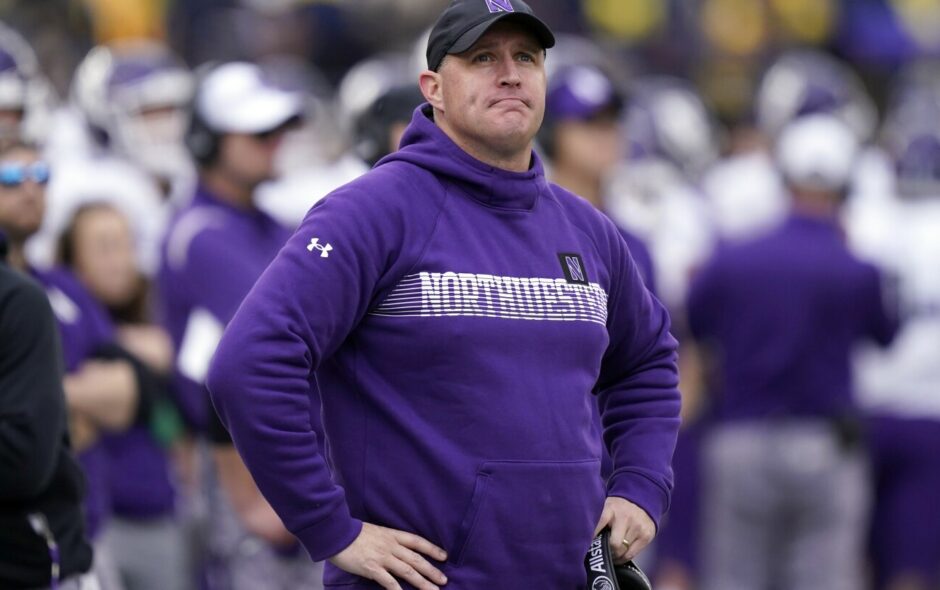Pat Fitzgerald, the long-serving head football coach at Northwestern University, has reached a confidential settlement with the school, bringing an end to a high-stakes legal battle stemming from his firing amid a hazing scandal. Fitzgerald had filed a $130 million wrongful-termination lawsuit, asserting he had no knowledge of the hazing practices that allegedly occurred in the football program. Two years later, the two parties have agreed to terms described as “satisfactory,” with the details remaining undisclosed.
Fitzgerald’s lawsuit began shortly after his dismissal in July 2023, following revelations that hazing—including degrading sexualized and racial incidents—had taken place within the team. He insisted he was unaware of the conduct and neither directed nor condoned it. In his statement, Fitzgerald expressed deep disappointment that the misconduct had occurred without his knowledge, saying that had he been informed, he would have immediately alerted administrators and acted to stop the behavior.
In response, Northwestern acknowledged that while hazing had indeed taken place, investigative and legal discovery did not indicate Fitzgerald had any direct knowledge or involvement. The university stated that Fitzgerald was upset upon learning of the details and saddened by how the conduct affected players. The timing of the settlement, with trial imminent, was framed by both sides as a means to alleviate further stress on Fitzgerald’s family and close a painful chapter.
This resolution arrives after Northwestern had already settled dozens of related lawsuits from former student-athletes. Earlier in 2025, the school resolved 34 separate claims tied to hazing incidents, indicating both institutional responsibility and a desire to move forward. Those settlements, while separate, formed part of broader efforts to address misconduct across the athletic department and institute preventive measures.
Fitzgerald served as Northwestern’s head coach from 2006 to 2022, posting a record of 110–101 and leading the team to numerous bowl appearances. He is widely regarded as the most successful coach in Northwestern football history. His dismissal—and the allegations that followed—sent shockwaves through both the local community and the wider college football world.
In the intervening period, while the lawsuit was pending, Fitzgerald volunteered as an assistant coach at a high school, signaling a desire to stay connected to the game and the broader coaching community. Northwestern, for its part, increased anti-hazing training and reporting protocols and has emphasized student safety as its top priority.
For Northwestern, the decision to settle Fitzgerald’s lawsuit underscores a shift in tone—from initial defensiveness to resolution and reflection. The university expressed best wishes for Fitzgerald as he contemplates a return to coaching, reflecting a desire to reconcile rather than continue public divisions.
For Fitzgerald, the settlement offers a measure of vindication, allowing him to assert he was unjustly accused and restore his reputation. His belief that the media narrative was overly harsh and damaging was reinforced by the lack of evidence showing his knowledge or tacit approval of the hazing behaviors. More than anything, he has sought to protect his family from further damaging headlines and emotional burden.
As Northwestern and Fitzgerald both prepare for what comes next, the broader conversation around sports culture, leadership responsibility, and athlete safety continues. The hazing scandal revealed fissures in the institution’s handling of misconduct—and the resolution of these legal disputes marks a chance for both healing and renewed commitment to integrity.
At its core, this settlement closes a long, difficult chapter for a school and a coach whose shared history was marked by both triumph and controversy. Moving forward, Northwestern must now rebuild trust and ensure the culture that allowed such behavior to go unchecked is never repeated. And for Fitzgerald, the path ahead—whether in coaching again or in other pursuits—will be shaped by the lessons and reputational challenges he navigated these past two years.




